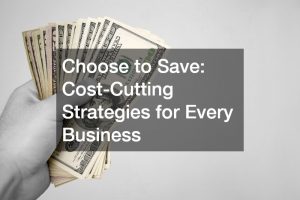With most countries under lockdowns or quarantine, many people will have time on their hands. Some of them may venture into writing a book. It’s an excellent idea these days, actually. A lot are cooped up in their homes, probably waiting for something to read.
Transforming a manuscript into a piece of literature isn’t as daunting as years ago as well. However, it doesn’t mean it won’t be confusing for first-timers. How can one compare self-publishing vs. traditional publishing? How much will it cost, or what type of story sells better?
For those who like to be the next Paulo Coelho or Danielle Steele, here are the answers to the most pressing questions:
1. What’s the Difference Between Self-Publishing and Traditional Publishing?
Many factors set these two publishing routes apart, and one of these is control. With traditional publishing, the agency can dictate many aspects of the book, from the story to marketing strategies. They may also have the power to reject work (and they can be ruthless sometimes). After all, they have to consider many things, such as trends, audiences, etc.
In self-publishing, the author retains much of the control. They can also bypass agents, so the chances of rejection are almost close to none. The challenge, though, is they take care of every step of the publishing process. They are the ones responsible for approving edits, cover designs, and the number of copies they like to print or sell.
Authors can choose either way or opt for a hybrid, which combines some of their features. The bottom line is to work with a publishing company that can extend the support they need.

2. How Much Does It Cost to Publish a Book?
This doesn’t have an exact number, and the figures can vary for self-publishing vs. traditional publishing. It’s best to compare the costs associated with the two.
In traditional publishing, the house may offer an advance, which can be between a few thousand to millions. It depends on whether the person is already an accomplished author or a famous person, like a celebrity. If the house offers a contract to the writer, then the person may also receive an advance.
The pressure of selling the book, though, is high since the publishing house has to pay for many expenses. These include marketing, printing, editing, and design. They may ask for higher royalties as well as they need to pay the business and the agent, to name a few.
In self-publishing, the costs can be between $2,000 and $5,000, and the author pays for it. Usually, the company offers different packages, and it may help further lower the expenses. Like in traditional publishing, the author receives a royalty or percentage of the sale, and so does the company. However, the rate may be significantly less, so the client gets much of the income.
3. What Stories Sell the Best?
Many factors can affect the sale of a book. In a 2018 study, authors sold more books at specific seasons, such as during holidays. Fiction seemed to fare better than nonfiction, but among the nonfictions, biographies did as well as general-fiction stories. Fiction writers were also more productive. It could be because they could release multiple books in a series, so the chances of earning increase.
A Forbes report in 2018, though, revealed that traditional publishers earned more from nonfiction in 2017. Overall, this segment generated over $6 billion in revenues compared to only $4 billion for fiction. The best advice, therefore, is to pay attention to trends and know the market.
With social and physical distancing in place, perhaps for months, one can pursue a dream: write and release a book. The FAQs mentioned above can help get authors-to-be a good head start, especially when it’s choosing between self-publishing and traditional publishing.





